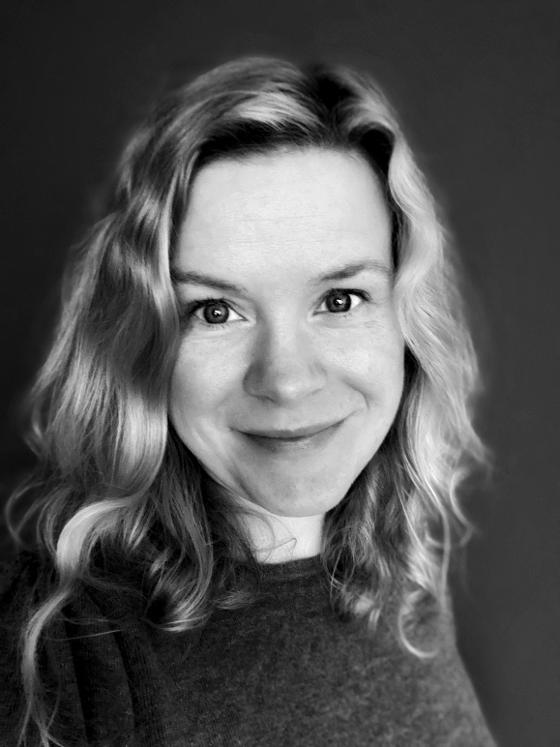disputerer for ph.d.-graden i helsevitenskap og vil offentlig forsvare avhandlingen:
“Dental anxiety in adolescents and adults Epidemiological studies based on the Tromsø Study 7 and Fit Futures 1 & 2”
|
Avhandlingen er tilgjengelig her!
NB! Auditoriet er åpent for alle som ønsker å delta både under prøveforelesning og disputas. Prøveforelesning over oppgitt emne Prøveforelesningen vil også bli strømmet/the trail lecture will also be streamed.
|
 |
Populærvitenskapelig sammendrag av avhandlingen:
High dental anxiety can hinder individuals seeking necessary dental treatment and thus constitute an obstacle in ensuring equal access to health care in the population. The potential negative consequences that anxiety-related avoidance of dental treatment may have on oral health concern both patients and the health services. Untreated oral diseases substantially affect the individual. For individuals suffering from high dental anxiety, there are often severe psychosocial consequences. Both the oral and psychosocial consequences of dental anxiety have a negative impact on their quality of life. The present thesis aims to map dental anxiety among adolescents and adults in northern Norway while building on the theoretical framework from other research concerning dental anxiety, including predisposing factors and development.
The thesis presents and discusses the results from three papers, which all use data from population studies in Tromsø municipality organized through the Tromsø Study; FitFutures 1 – FF1, FitFutures 2 - FF2, and the Tromsø Study 7. The first paper (FF1) found that high dental anxiety was reported by 11.6% of the adolescents. There were significant differences among those with high or low dental anxiety concerning anticipated pain at the dentist, avoidance of dental treatment, social motivation concerning oral health, control belief, and sex. The second paper (FF2) looked at the development of dental anxiety over time among adolescents and found that first wave measures (FF1) of dental anxiety, psychological distress, and dental caries significantly predicted high dental anxiety two years later. Individuals reporting a change in dental anxiety level, irrespective of the direction of change, had more caries experience and more mental health symptoms than the majority who did not experience any change. Anticipated pain at the dentist changed in both directions in correspondence with changes in dental anxiety scores. Finally, the third paper (the Tromsø Study 7) presented data from an adult sample, showing that high dental anxiety was reported by 2.9% of the sample and was most prevalent among women and the youngest age groups. Individuals with high dental anxiety reported more mental health symptoms, poorer oral health and irregular dental visits than individuals with no or lower dental anxiety scores. Anxious individuals reported considerably more psychological traumas originating from dental treatment compared to the less anxious. Reporting sexual abuse remained a significant individual contributor to dental anxiety after controlling for covariates, including current mental health symptoms. Based on the results presented in the paper, the discussion in the thesis proposes that there is a need to increase the familiarity with trauma-sensitive care among dental health care professionals and that dental treatment needs among young patients offer an opportunity to provide treatment that reduces dental anxiety.
Hovedveileder
Førsteamanuensis Jan-Are Kolset Johnsen, Institutt for klinisk odontologi, Det helsevitenskapelige fakultet, UiT Norges arktiske universitet.
Biveiledere
Professor Jan Olof Bergdahl, Institutt for klinisk odontologi, Det helsevitenskapelige fakultet, UiT Norges arktiske universitet.
Professor Tiril Willumsen, Institutt for klinisk odontologi, UiO.
Bedømmelseskomité
Professor Magnus Hakeberg, Institute of Odontology, University of Gothenburg – 1. opponent.
Professor Satu Lahti, Institute of Dentistry, University of Turku - 2. opponent.
Førsteamanuensis Gro Eirin Holde, Institutt for klinisk odontologi, Det helsevitenskapelige fakultet, UiT Norges arktiske universitet – leder av komité.
Disputasleder: Professor Mohammed Al-Haroni, Institutt for klinisk odontologi, Det helsevitenskapelige fakultet, UiT Norges arktiske universitet.
De som ønsker å opponere ex auditorio kan sende e-post til leder av disputasen.
Opponents ex auditorio should sign up to leader of defense by e-mail to: Mohammed Al-Haroni: mohammed.al-haroni@uit.no